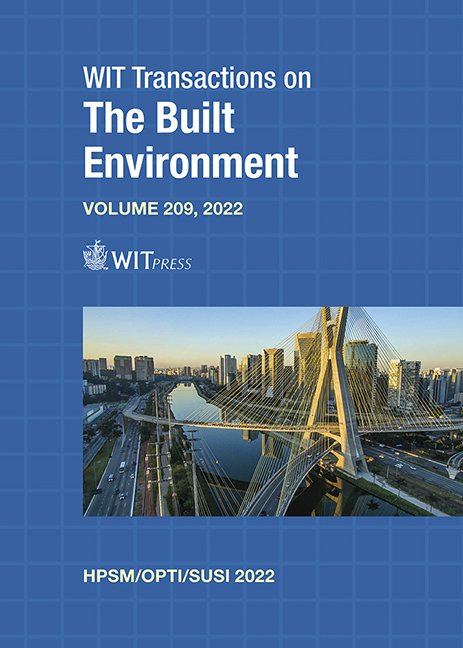30 YEARS’ EXPERIENCE ON THE OPTIMIZATION OF CABLE-STAYED BRIDGES
Price
Free (open access)
Transaction
Volume
209
Pages
14
Page Range
57 - 70
Published
2022
Paper DOI
10.2495/HPSU220061
Copyright
Author(s)
ALBERTO M. B. MARTINS, LUÍS M. C. SIMÕES, JOÃO H. J. O. NEGRÃO, FERNANDO L. S. FERREIRA
Abstract
Cable-stayed bridges optimization consists of finding the stiffness and mass arrangement of the load-bearing members (deck, towers and cable-stays) and the cable forces distribution, aiming to minimize cost and to achieve an adequate structural behaviour under static and dynamic loading. The first works on this topic were reported over 40 years ago but it is attracting growing interest with more than half of the publications in the last decade. The main goal of this paper is to share the perspective of this research groups 30 years’ experience in this domain. This paper starts with an overview of the optimum design of cable-stayed bridges followed by a presentation of previous research works by the authors. Current research and future developments envisaged are also referred to. The first works consisted of the optimization of steel bridges considering three-dimensional modelling, box-girder decks, seismic action and uncertainty-based optimization. The optimum design of concrete bridges and the simultaneous optimization of structure and control devices in steel footbridges subjected to pedestrian-induced vibrations and steel bridges under seismic action followed. The optimization of bridges with complex geometries and other cable-supported concrete bridges, like extradosed bridges and under-deck cablestayed bridges, are subjects of recent research. The optimization of long-span and multi-span bridges, including novel cable arrangements, and the optimum design considering robustness are of major relevance in future developments. Although with limited scope at present, given the problem size, it is expected an increasing use of metaheuristic algorithms, artificial neural networks and surrogate models.
Keywords
cable-stayed bridges, optimization, cable forces, optimum design, sizing design variables, shape design variables





